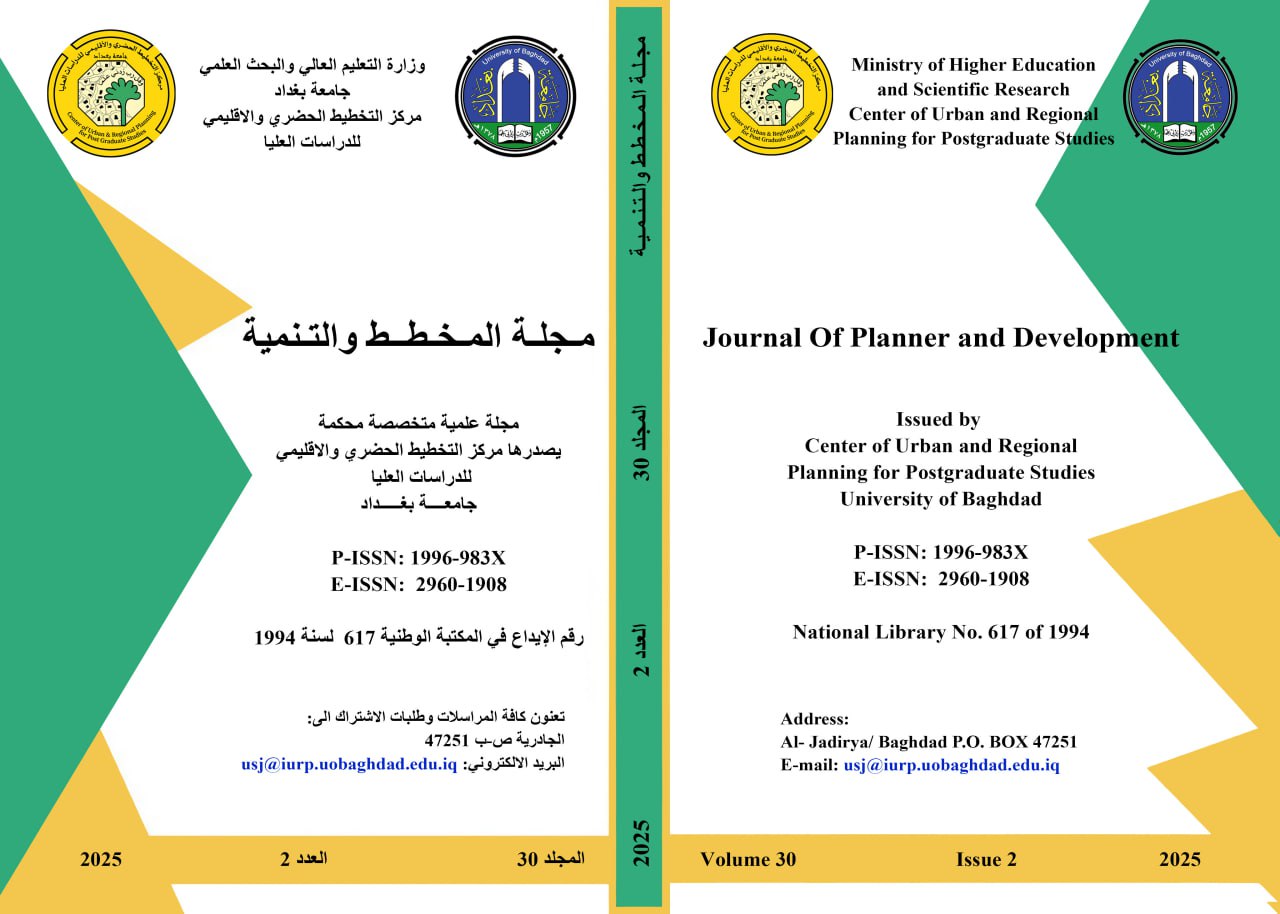The impact of decentralization in reducing the spatial development gap (Social Fund for Development projects) In Babylon Governorate
Keywords:
Development, spatial development gap, decentralisation, social fundAbstract
The research aims to give decentralised planning a more influential role for economic life and social development by enhancing the participation of the local community in the development process and achieving the exploitation of the local population in making development decisions and identifying priorities and needs according to the development gap.
The Social Fund for Development is one of the decentralisation methods adopted by the Ministry of Planning through which development projects are prioritised according to the spatial gap with the participation of the local community. The aim is to promote rural settlements and improve the quality of life for the population by reducing the development gap and achieving a spatial balance of development to enhance the stability of rural communities.
The research found that spatial decentralisation is critical for prioritising development projects according to the spatial gap of development and enhancing the confidence of local communities, especially in the remote rural settlements of Babylon Governorate. The SFD experience succeeded in prioritising development projects for areas that suffer from a spatial gap but did not meet the requirements of the development process due to low allocations.
The study recommended that this experience should be reflected in various development projects that directly affect the population and meet their service needs and life aspirations by using technology to prioritise projects and elect members of community committees.



